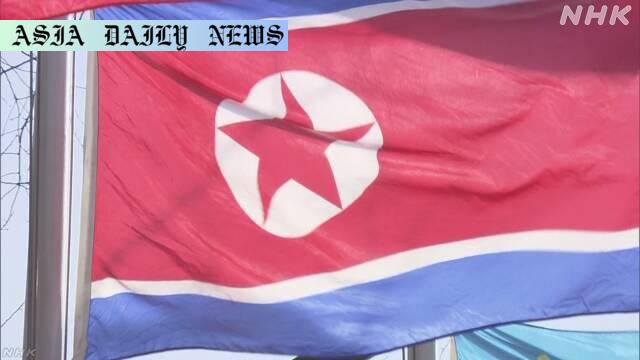North Korea issues serious concerns over joint aerial drills by Japan, US, and South Korea, urging for regional caution.
- North Korea’s defense ministry strongly opposes trilateral drills.
- The ministry warns of grave consequences for regional security.
- The exercises include US B-52 strategic bombers near South Korea.
- Top defense officials from Japan, US, and South Korea reaffirm cooperation.

North Korea Condemns Trilateral Aerial Drills
North Korea’s defense ministry has sternly criticized the recent joint aerial military exercise conducted by Japan, the United States, and South Korea. Through a press statement released by the Korean Central News Agency (KCNA) on Sunday, North Korea expressed its “serious concern” over what it described as “hostile acts” by the three nations. It alleged that these provocative military maneuvers pose a direct threat to regional stability.
The timing of the training has compounded tensions already stewing in the region. The trilateral exercise, which took place off the southern coast of South Korea, was designed as a countermeasure against North Korea’s advancing nuclear and missile technologies. With the inclusion of a US B-52 strategic bomber—a symbol of immense military firepower—the drills sent a clear message of allied strength, prompting a defensive rebuke from Pyongyang. This response, in turn, raises the stakes in an already volatile geopolitical environment.
Rising Stakes Amid Persistent Nuclear Threat
North Korea’s statement explicitly underscored its stance against any actions undermining its security. The Policy Office of the defense ministry warned of undefined “grave consequences” should these drills persist, signaling its readiness to take “practical military counteraction” to safeguard its sovereignty. Pyongyang’s rhetoric further cemented its position in an already strained relationship with regional players.
Given the existing challenges, these exercises demonstrated renewed commitment among Japan, South Korea, and the United States to collectively address North Korea’s escalating threats, particularly its ever-evolving missile technology and nuclear development programs. However, such military demonstrations also risk further exacerbating the fragile dynamics in the region.
Persistent Alliances and the Path Forward
Strategic alliances among Japan, South Korea, and the US have only grown stronger in recent years, facilitated by shared concerns over North Korea’s unpredictability. The meeting among defense chiefs in Seoul reflected unity in addressing rising tensions. It also signaled an unyielding stance against Pyongyang’s provocations—particularly through joint actions meant to enhance military preparedness. By emphasizing collective defense, these nations aim to send a clear message to the North that its aggressive posturing will not go unanswered.
Nonetheless, it remains to be seen whether these exercises will prompt North Korea to recalibrate its strategy or intensify its military ambitions further. With calls for regional caution from international observers, finding a balance between deterrence and diplomacy will be critical in shaping the future trajectory of the conflict.
Conclusion: Regional Implications
The unfolding developments underline the growing complexities in the region’s security dynamics. North Korea’s vehement opposition to perceived provocations highlights its strategic sensitivity to allied actions. While the exercises reaffirm allied solidarity, they cast light on the precarious tightrope nations must walk to maintain stability while addressing legitimate security concerns.



Commentary
A Complex and Volatile Regional Landscape
The recent escalation involving North Korea’s criticism of joint aerial drills conducted by Japan, the US, and South Korea underscores the precarious nature of regional geopolitics. Pyongyang’s reaction comes as no surprise, given its long-standing objection to what it perceives as military provocations. In its view, these exercises symbolize a direct challenge to its sovereignty and strategic interests. However, from the perspective of its rivals, these drills are necessary as a deterrent against North Korea’s growing missile and nuclear capabilities.
Balancing Power and Diplomacy
The triangle of power between Japan, South Korea, and the United States reflects a coordinated approach to mitigating Pyongyang’s increasing militarization. This collaboration aims to project strength and solidarity amidst an environment marked by unpredictability and unease. However, such actions also raise questions regarding their impact on diplomatic avenues. Is the region heading towards an arms race, or can diplomacy emerge as a feasible path forward?
The Global Community’s Role
Diplomatic players globally have a responsibility to mediate tensions, encouraging dialogue alongside strategic preparations. While it is vital to maintain robust defense mechanisms, a unilateral focus on military posturing risks catalyzing a cycle of escalation. For effective de-escalation, there must be concerted efforts to revive stalled negotiations, urging North Korea to re-engage with constructive discussions rather than confrontational rhetoric.
A Call for Strategic Restraint
In light of rising tensions, all parties involved must weigh the risks of their actions carefully. Although joint exercises deliver an immediate message of resolve, their long-term implications for peace and stability must be taken into account. As the global community watches closely, the development of a multifaceted approach—combining strength with responsible diplomacy—remains the best way to navigate this volatile geopolitical chessboard.